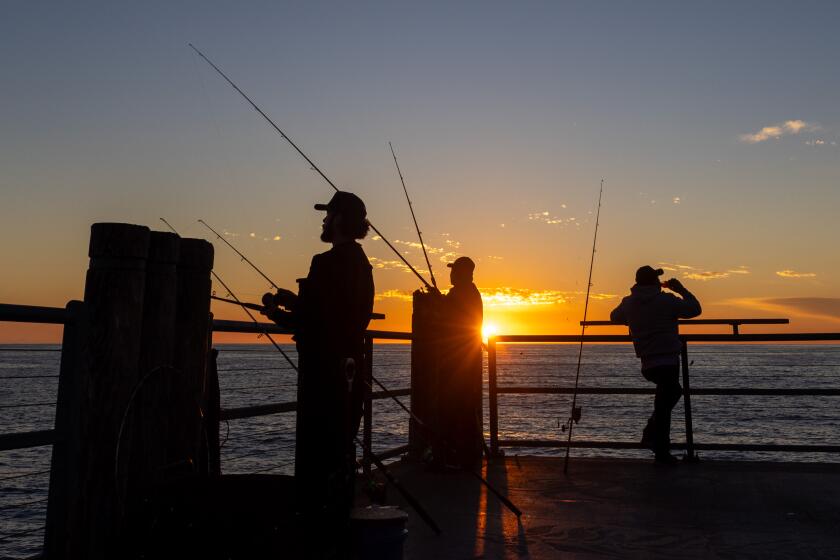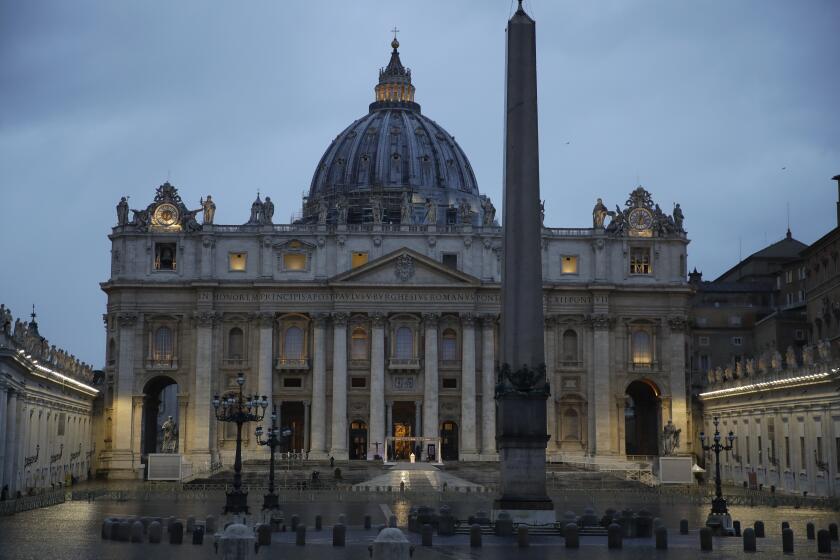Proposition 8 same-sex marriage fight headed to U.S. Supreme Court
California’s legal battle over same-sex nuptials is now headed to the U.S. Supreme Court, the final chapter in four years of litigation over the constitutionality of Proposition 8’s ban on gay marriage.
In a brief order Tuesday, the U.S. 9th Circuit Court of Appeals said a majority of the court’s active judges voted against reconsidering a three-judge panel’s decision to overturn the voter-approved 2008 state constitutional amendment. Three dissenting 9th Circuit judges who favored review called the panel’s ruling a “gross misapplication” of the law that “roundly trumped California’s democratic process.” The two judges who voted to overturn the ban last February reiterated Tuesday that their decision was limited to the situation in California.
Lawyers in the case expect the U.S. Supreme Court to review Proposition 8 this fall and decide its constitutionality next June. Until the Supreme Court acts, the 9th Circuit’s order will be on hold and Proposition 8 will remain in effect.
“The end is now in sight,” said Chad Griffin, who started an organization that is financing the legal battle against Proposition 8.
“We are not at the end of the line yet, but we are vastly closer,” said Theodore B. Olson, one of the lawyers for two same-sex couples who challenged Proposition 8 in federal court
The case is heading to the high court at the same time as another landmark gay-rights ruling. The 1st Circuit Court of Appeals last week overturned the 1996 Defense of Marriage Act, ruling that the federal ban on recognizing same-sex marriages violated the U.S. Constitution.
The dissents in Tuesday’s 9th Circuit decision showed that courts remain divided on the issue. Judge Diarmuid O’Scannlain, joined by two other jurists, wrote that even President Obama favored letting states decide “in a respectful way” whether to permit gays to marry.
“Today our court has silenced any such respectful conversation,” wrote O’Scannlain, who was appointed by President Reagan. O’Scannlain complained that the 9th Circuit’s refusal to review the case endorsed a view that “animus must have been the only conceivable motivation for a sovereign state to have remained committed to a definition of marriage that has existed for millennia.”
“Even worse,” O’Scannlain continued, “we have overruled the will of 7 million California Proposition 8 voters.” He was joined by Judges Jay S. Bybee and Carlos T. Bea, both appointees of President George W. Bush.
Judges Stephen Reinhardt and Michael Daly Hawkins, who voted in February to overturn Proposition 8, responded in a concurring opinion that their ruling applied the law to the facts in California, where voters reinstated a marriage ban six months after the California Supreme Court gave gays the right to wed. The panel’s decision was based on a 1996 Supreme Court precedent that said a majority may not take away a minority’s rights without legitimate reasons.
“We held only that under the particular circumstances relating to California’s Proposition 8, that measure was invalid,” wrote Reinhardt, who was appointed by President Carter, and Hawkins, a Clinton appointee. “We did not resolve the fundamental question that both sides asked us to: whether the Constitution prohibits the states from banning same-sex marriage.”
Whether the case will remain so narrow depends on the U.S. Supreme Court. Lawyers fighting Proposition 8 will oppose high court review, lest they lose even their narrow victory. They nevertheless expect the court to take the case and plan to argue that all marriage bans violate the constitutional rights to fairness under the law and freedom from discrimination.
The Supreme Court has a conservative majority, but Justice Anthony Kennedy occasionally departs from it and joins the more liberal justices. Kennedy has written key gay rights rulings and may be the deciding vote in the marriage debate.
The question of same-sex marriage is reaching the high court at a time when public support appears to be rising.
In the three years since the federal suit was filed, a law that banned openly gay men and lesbians from serving in the military has been repealed, more states have permitted same-sex marriage and Obama announced that he believes gays should be entitled to wed. Polls have shown growing support for marriage rights, though some surveys still show a plurality of respondents opposing gay marriage.
The Supreme Court has been reluctant to get ahead of public opinion, and more than half the states now bar gay marriage. But when the high court struck down a ban on interracial marriage in 1967, polls showed a majority of Americans still opposed mixed-race matrimony.
More to Read
Start your day right
Sign up for Essential California for news, features and recommendations from the L.A. Times and beyond in your inbox six days a week.
You may occasionally receive promotional content from the Los Angeles Times.







